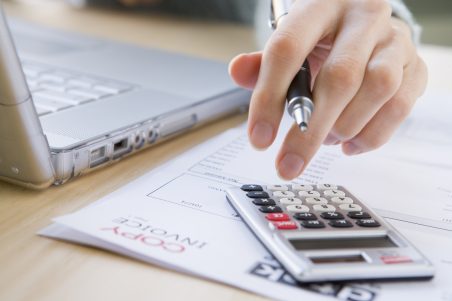Accounts to Tackle First if Indebted with Limited Resources

At any moment, our financial circumstances can change, whether from sudden unemployment or pay cuts, health emergencies, or natural disasters – even irresponsible spending can creep up on us. Unfortunately, overwhelming, unmanageable debt can be quick to follow, leaving your financial independence in the balance.
If you’re tens of thousands, or even hundreds of thousands, of dollars in debt, it may be impossible to see the light at the end of the tunnel. Just know, paying off your debts is possible. Regaining your financial freedom will take time and personal strength, but it is doable, even if you’re working with limited resources.
If you’re just starting your journey to paying off your debts, read on to find out in what order you should prioritize your financial obligations.
Start with the Necessities.
If bad luck or mismanagement of income has you behind on the essentials, including your mortgage or rent, car, or utilities, you should be focusing on these debts first. Mortgage and car loans are considered a form of secured debt, which is any debt backed by collateral. That means lenders can repossess this property, leaving you without transportation or, worse, a home. As for utilities, such as electric, water, and phone lines, companies will simply turn them off until you pay.
Fortunately, most companies are willing to work out a payment plan with you, where you would pay an agreed upon portion of your debt every month in addition to your regular monthly payments until you are caught up. However, if you find that you simply cannot afford to pay for these necessities even after making an agreement with your lenders, it might be time to consider downsizing.
Move on to Legal Obligations.
If you owe taxes or child support, ignoring these obligations can have severe legal consequences, including wage garnishment or jail time. Even if you are planning on filing bankruptcy, taxes and child support are debts that are rarely discharged.
In the case of child support, the consequences are numerous if you fall behind and do not contact the local enforcement agency to set up a different payment plan. Repercussions may include a warrant issued for your arrest, additional fines, suspension of your driver’s license, or denial of tax refunds.
As for your taxes, criminal charges aren’t likely unless you purposefully evade taxes. Interest penalties and wage garnishment are the most likely outcome. However, the IRS is, in most circumstances, more than willing to work out installment plans for those who cannot pay their tax bill immediately.
Lastly, Address Unsecured Debts.
Once you’ve ensured you are able to keep a roof over your head and your legal obligations are taken care of, unsecured debts should be your next focus. Unsecured debt is any debt that is not guaranteed by some type of property or other asset, meaning lenders have nothing to fall back on when you default on your loans. The most common forms of unsecured debt include credit cards, medical bills, and student loans.
There are a number of consequences that could result if you are unable to repay your unsecured debt, including: lenders and creditors can report your delinquent accounts to credit reporting agencies, resulting in lower credit scores; you may be subject to a lawsuit, though most creditors will determine if this course of action is viable by first assessing your ability to pay; or your wages could be garnished or tax refunds taken – this is more likely with defaulted student loans.
If you don’t have student loans or they are deferred and aren’t in default, you should focus on paying off your credit card debt, starting with the ones with the highest interest rates. However, if you discover that you are only able to make the minimum monthly payments and, as a result, your credit card debt is snowballing out of control due to mounting interest charges and other fees, you may want to consider trying to negotiate your debts down through a professional debt settlement program.
If you’re in need of professional representation to reduce the amount you owe in credit card debt, New Era Debt Solutions may be able to help. New Era is a debt settlement company that helps people dramatically reduce their debt obligation to secure their financial independence. Since 1999, we have settled over $200 million in debt for our clients.
To see if debt settlement is right for you, contact us or fill out the form on this page for your free debt analysis.
